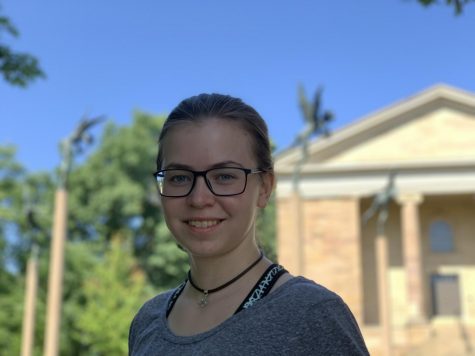Writers for Black History Month
There is something we can learn from these writers every day of the year.
February 28, 2022
As Black History Month comes to a close, here are some writers who deserve to be highlighted every month of the year:
Frederick Douglass
Born into slavery, at a young age Douglass discovered a relationship between literacy and freedom. When 12,he purchased The Columbian Orator, revolutionary in its speeches and writings discussing natural rights. By his death at the age of 77, his legacy comprised three autobiographies, countless speeches, and his antislavery newspaper The North Star, demanding equality and justice. Douglass wielded his words tirelessly from advocating abolition, to demanding emancipation as an outcome of the civil war, to speaking for racial equality and women’s rights as he served under five presidents post-Reconstruction.
Harlem Renaissance
From approximately 1910 to the mid-1930’s, an electrical surge of African American pride burst forth in Harlem neighborhood of New York City. A precursor to the civil rights movement, the arts in music, art, theatre, and literature flourished.
Langston Hughes
There is perhaps no name more synonymous with the Harlem Renaissance than Langston Hughes. His first, and most famous poem, “The Negro Speaks of Rivers” was published in the NAACP’s magazine The Crisis when he was barely out of high school. Hughes’ work grew from there, characterized as much by a steadfast pride in African American heritage and demand for equality as a constant good humor and persevering belief in a better America. The blues and jazz music characteristic of the Harlem Renaissance also found itself woven into Hughes’ words, his “jazz poetry,” perhaps most directly in his first collection, The Weary Blues.
Zora Neale Hurston
An embodiment of the word “vivacious,” Zora Neale Hurston skimmed over high school on to Howard University followed by Barnard College, where she was first introduced to the Harlem culture. Surrounded by an environment possessing a vivacity comparable to hers, Hurston fast became known for her brilliant story-telling abilities. Studying oral histories, folklore, and even voodoo, her works celebrate the richness of tradition in African American culture. Overlooked and even criticized in her lifetime, Their Eyes Were Watching God has grown not only into a classic celebrating the rural Black South but is now considered one of the greatest works of the Harlem Renaissance.
Dr. Martin Luther King Jr.
Many words are lost to history, but never those so fastidiously strung together and powerfully orated as those of Dr. Martin Luther King Jr. His “I have a dream” speech is iconic in a word, and just one in a string of country-changing writings by King. His “Letter from Birmingham Jail” represents civil disobedience and American rights so well that it has become required reading for the U.S. Government AP exam in schools. King’s words are etched into the foundation of the Civil Rights Act of 1964 and have been the fertile soil from which many in the United States and around the world continue to seek justice.
Toni Morrison
With both the honor of a Nobel Prize in Literature and a frequent appearance of her books on the “most banned” list, it should be no surprise that Toni Morrison wrote with a fearless passion. Her pages hum with that which is feared and marginalized, the lives of black women commonly finding voices in her work. Her works, as both editor and novelist, are sown in history. The primary sources of The Black Book, which Morrison complied and published, are rooted as much in Black American history as the fiction of her novels. As the first African American woman to receive the Nobel Prize in Literature, Morrison was a pioneer in every direction her ambition took her.
N.K. Jemisin
A writer for whose next work to eagerly await, N.K. Jemisin has already been crowned with the title of the first author to win three Best Novel Hugos in a row for her The Broken Earth trilogy. A science fiction and fantasy writer, Jemisin is a creator of worlds, delving into their intricacies from race to industry to religion. Having a degree in psychology, Jemisin often manipulates power in her story, revealing effects of stratification and subjugation that aren’t as foreign as we would like them to be. Her work brings her to the edges of volcanoes to see what it would feel like and the contemplation of the importance of the moon. Her genre may attempt to label her fantasy, but her stories carry with them a very human weight.
It feels a great wrong to end this list at only six writers. Indeed, this list is but a scratch on the surface of those African American authors whose words have changed country and world. While my meager sentences and word limit cannot do them justice, it takes only a perusal of the library, a search of the internet, to find the brilliance of these writers.




